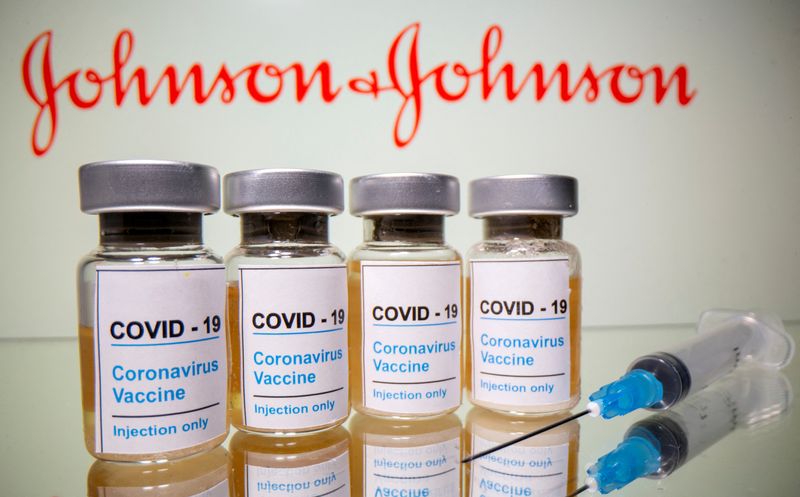(Reuters) - The European Union's drug regulator on Wednesday recommended that a booster dose of Johnson & Johnson (NYSE:JNJ)'s COVID-19 shot may be given at least two months after a first dose in people aged 18 years and older, as the bloc battles surging infections.
The Omicron coronavirus variant is swiftly spreading across the globe, with many new cases linked to the mutant and the World Health Organization warning that Omicron poses a "very high" risk but data on its severity is limited.
The European Medicines Agency (EMA) said its recommendation to allow J&J booster doses follows data which showed the additional shot led to a rise in antibodies against the COVID-causing SARS-CoV-2 coronavirus.
The EMA said that a J&J booster dose may also be given after two doses of one of the mRNA vaccines from Pfizer-BioNTech or Moderna (NASDAQ:MRNA), in line with its recommendation on mixing vaccines.
Several EU countries are tightening restrictions after at least one patient died in the United Kingdom after contracting the Omicron variant, which was first detected last month in southern Africa and Hong Kong.

The rolling out of booster doses is being stepped up as longevity of protection offered by standard vaccination has been under scrutiny due to Omicron, whose high number of mutations may enable it to escape protection offered by vaccines.
The EU watchdog has already endorsed vaccines from Pfizer-BioNTech and Moderna as a third booster dose at least six months after a standard two-shot course. It is also considering AstraZeneca (NASDAQ:AZN)'s booster doses.